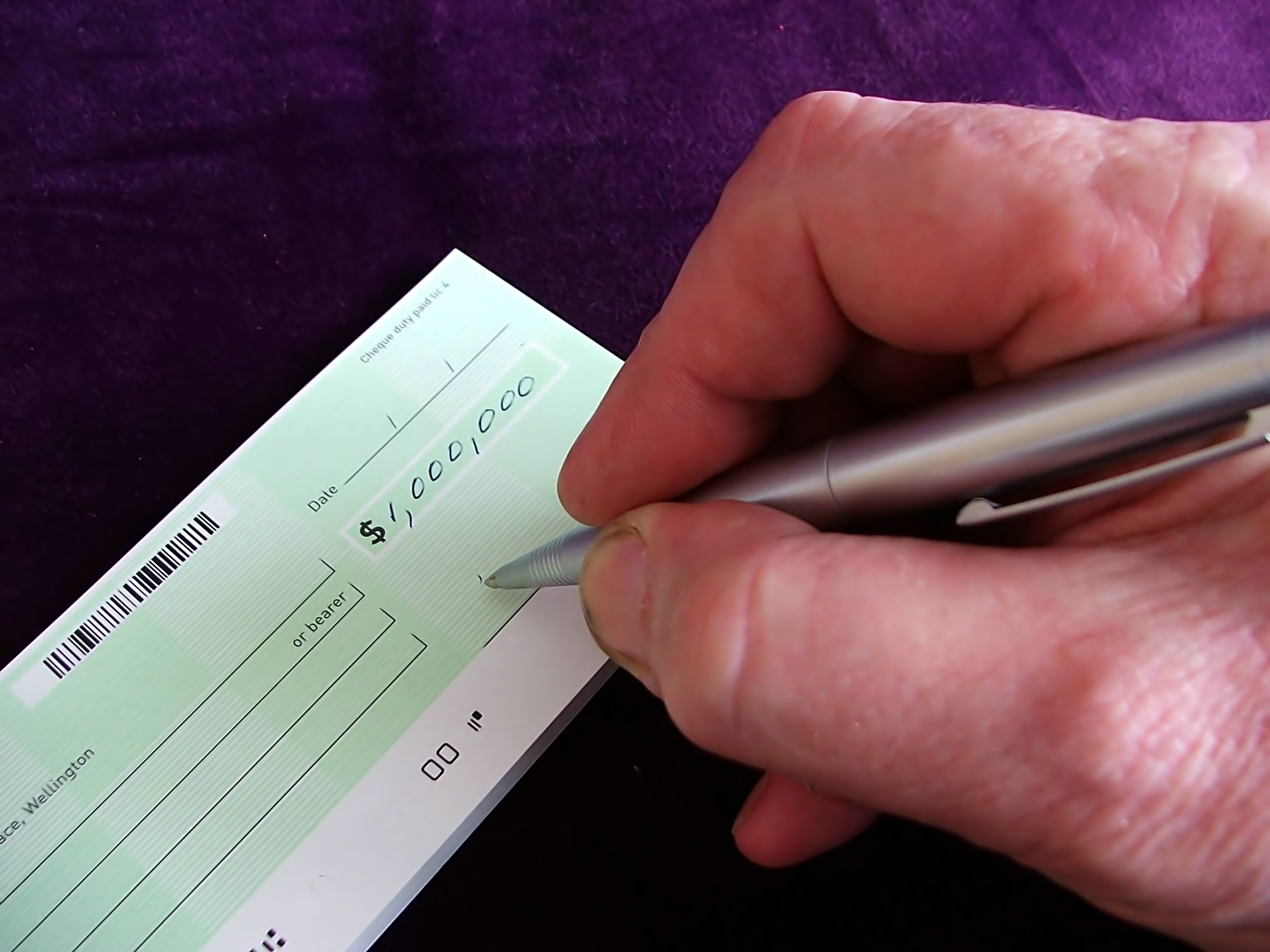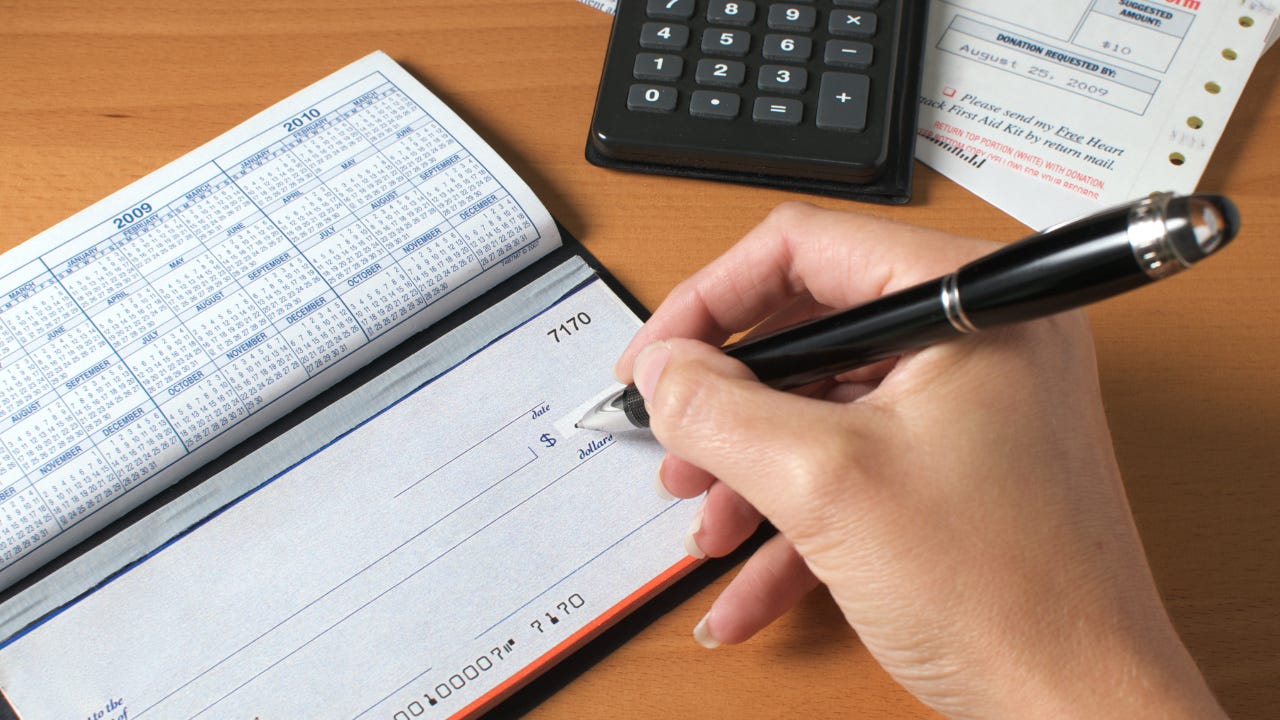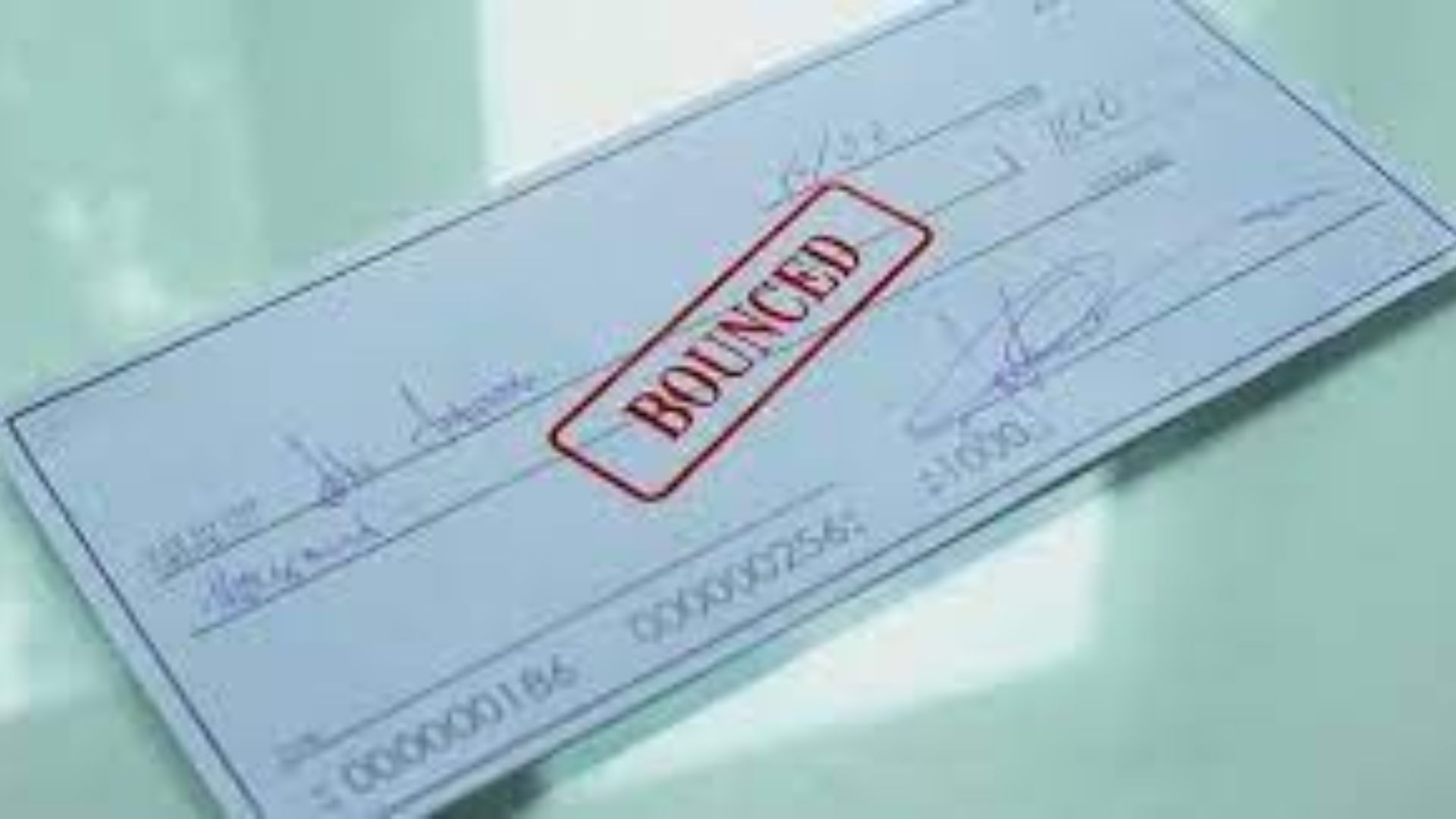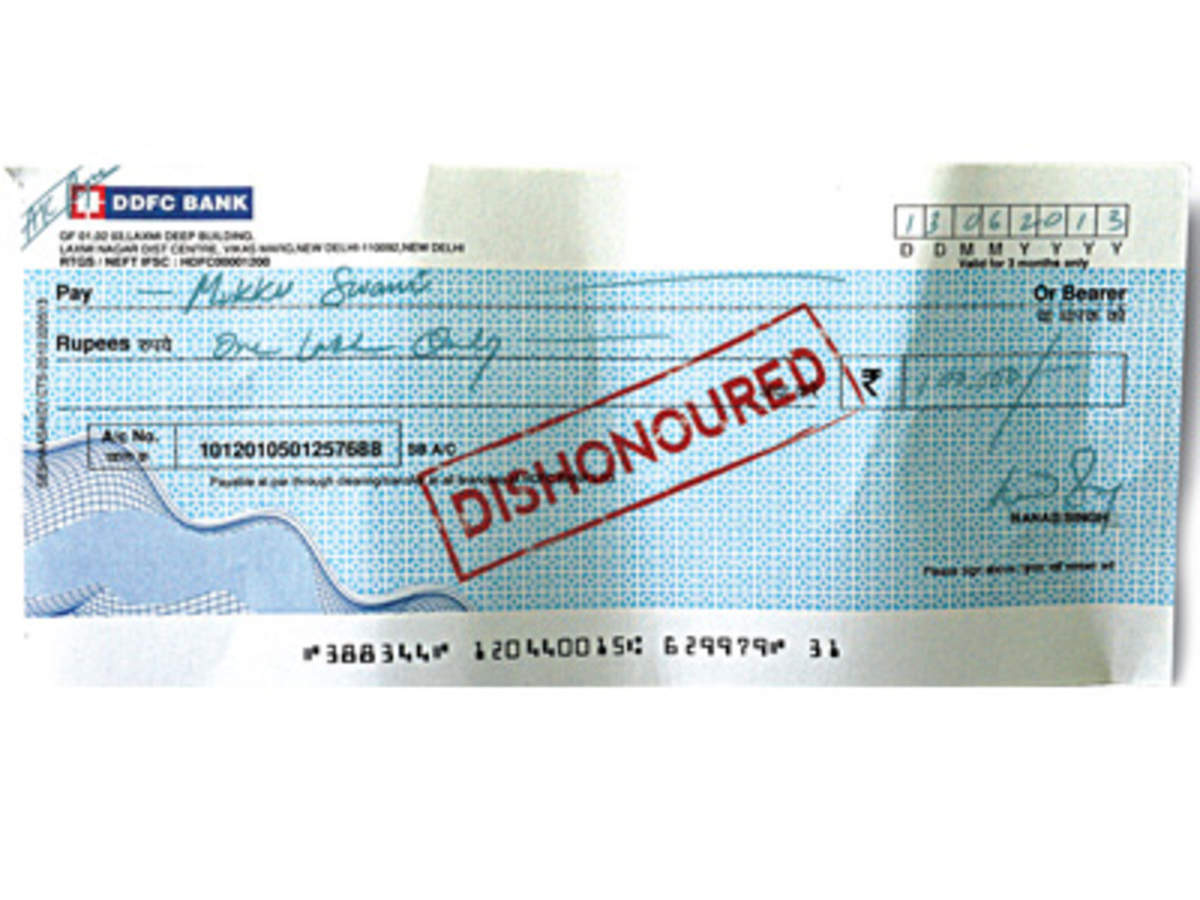What Are The Implications Of A Bounced Check?
Understanding what are the implications of a bounced check is vital for individuals and businesses alike, as it underscores the importance of financial responsibility and adherence to banking regulations.
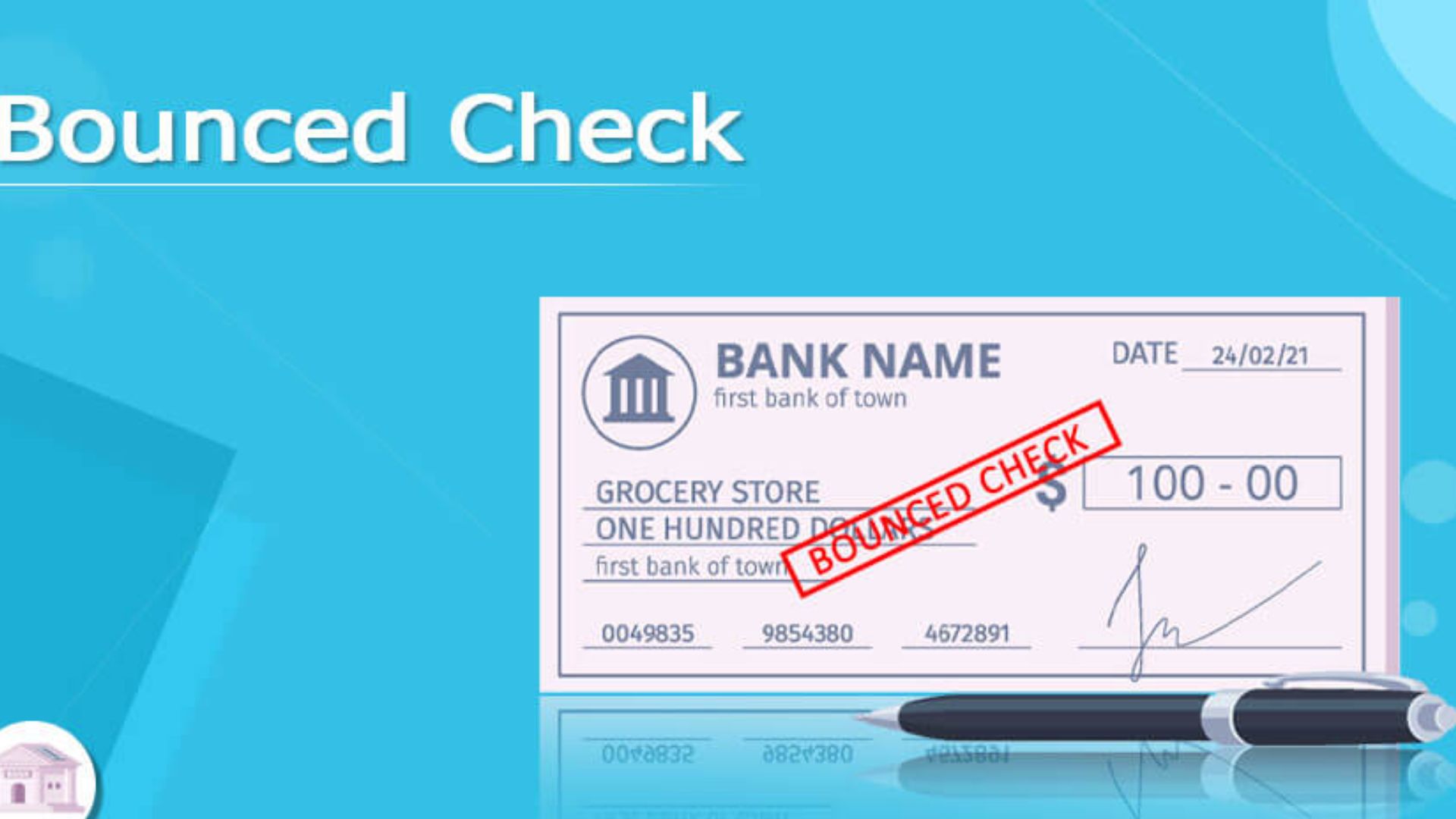
Morgan Barrons
Feb 21, 2024
Check bounces are not fun for anyone. Bouncing a check can occur for a variety of reasons, and the process is comparable to receiving a root canal or spending the afternoon at the Department of Motor Vehicles.
A bank customer may occasionally write a check without first checking their account, or a check may not clear before the necessary funds are available (for example, a paycheck may clear a few days after a person pays their phone or rent).
Recognizing the fines and penalties that may be incurred and knowing how the process works are essential to preventing a bounced check. Let's shed some light on the experience of a bounced check and what are the implications of a bounced checkyou may need to know.
What Is A Bounced Check?
A check that is returned unpaid because there is insufficient money in the bank customer's account is known as a bounced check. The check is "bounced" back to the account holder by the bank, which refuses to honor it and usually charges a penalty fee for insufficient funds (NSF).
A "rubber check" is another term for a bounced check. Although there are numerous reasons why checks bounce, insufficient funds are the most frequent cause. When a check bounces, the writer faces financial repercussions since the recipient does not receive the intended amounts.
How Serious Is A Bounced Check?
Your bank will probably charge you an overdraft fee in addition to a non-sufficient funds (NSF) fee if you write a check for an amount you did not have enough money to cover.
You can also be charged by the company you wrote the unsuccessful check to for not making the payment. Businesses refusing to accept your checks, a decrease in your credit score, and potentially even legal issues are additional repercussions of a failed check.
Causes Of Bounced Checks
Insufficient Funds
Insufficient funds in the check writer's account is one of the main reasons why checks bounce. This can occur when someone spends more money than they have available in their account, which causes the cheque to be rejected when it is brought in to be paid.
Poor money management, unforeseen costs, or delayed deposits can all lead to a lack of funds, so people need to keep a careful eye on their account balances and transactions to prevent missing checks.
Account Holder Mistake
Account holder error is another frequent reason for bounced checks. This can happen if someone writes a check and doesn't realize their account balance isn't high enough to cover the amount, or if they write erroneous information on the check (incorrect date, payee, or amount, for example).
People should double-check all check details before issuing checks, closely monitor account balances and transactions, and reduce the possibility of checks being returned unpaid due to account holder error.
Fraudulent Activity
Bounced checks can occasionally be the consequence of fraud, including identity theft, check forging, and illegal account access. If a fraudulent check is discovered, the bank will usually decline to honor it and may launch an investigation.
People should periodically check their account records, report any unusual activity to their bank, and take precautions to secure their personal information to protect themselves from bounced checks brought on by fraudulent activity.
Check Not Filled Out Correctly
A check may bounce if it contains inaccurate or missing information. Before giving a payee a check, there are a few details to confirm;
- The check's date is accurate. Make sure you have enough money in the account when you write the check because banks are permitted to process post-dated checks before the date written on the check.
- The check amount's wording and numbers match. The check has the amount written twice, once in words and once in numbers. Make sure the two figures line up.
- An authorized signer on the account has signed the cheque in the correct location.
- Completing a check correctly can help you prevent mistakes that can result in the check bouncing.
3 Implications Of Bounced Checks
Overdraft Charges
The bank may impose an overdraft fee on the check writer in the event that the check fails owing to inadequate funds. This amount, which is imposed for each bounced check, can quickly mount up and cause the individual to experience severe financial hardship.
The recipient of the returned check can also be assessed a returned check fee by their own bank, which would increase the financial strain on both parties.
Negative Impact On Credit Score
The check writer's credit score may suffer as a result of bounced checks. A negative mark will appear on the check writer's credit report if the recipient reports the bounced check to credit bureaus and the individual does not swiftly resolve the matter and make good on the payment.
This may result in a reduced credit score, which would make it more challenging for the person to get credit cards, loans, or other financial goods down the road.
Legal Consequences
Bounced checks can carry legal ramifications for the check writer. Depending on the situation and the writer's intention, writing a check for less than the amount due could be regarded as check fraud. A person who is found guilty of check fraud may be subject to jail time, fines, and legal costs.
Furthermore, the check writer may face further financial and legal obligations if the recipient of the rejected check takes legal action to recover the outstanding amount.
What To Do If You Bounce A Check?
If a check bounces, take these actions;
Reach Out To Your Bank And The Check Recipient
As soon as you discover a problem, get in touch with your bank, the individual or business that received the check, and the bounced check. To demonstrate your good intentions, explain your circumstances.
Pay Up Quickly
A bounced check won't likely show up on your credit record if you pay it off as quickly as possible, so your credit score won't be negatively impacted. However, if the check is not paid, it becomes an outstanding debt that can be reported to Experian, Equifax, and TransUnion, the three major credit reporting agencies, by a bank, merchant, or debt collection agency.
Avoid Bouncing More Checks
You are breaking the law if you write cheques knowing that you don't have the money to pay them. Depending on the value and volume of the outstanding transactions, you can face a misdemeanor or possibly a felony penalty.
To put it, if you know you don't have enough money in your bank account, don't write a check. If a bill needs to be paid, get in touch with the supplier to arrange for a later payment or installment payment.
Bounced Check Fees
Overdraft Fees
Technically speaking, you might not initially be charged for a returned check when you bounce a check; instead, you might be charged an overdraft fee. If you've chosen overdraft protection, your bank may still decide to authorize the check when someone or a business deposits it at their bank even if you don't have enough money in your account to cover it.
However, your account would become negative, and your bank would likely charge you an overdraft fee to make up for the inconvenience. $35 or more could be charged for each transaction.
Keeping a backup account, such as a savings or credit line, from which money can be sent to your checking account in the event of an overdraft, is an additional choice. Overdraft protection transfer costs are levied by certain banks and credit unions, but they are often far lower than overdraft fees.
Nonsufficient Funds Fees
If the check bounces and is returned to the depositor's bank, your banking institution will not pay the amount on it. The returned item fee, sometimes referred to as an NSF or insufficient funds fee, is what you'll probably be charged as a penalty for the denied check.
This comes with a $35 price tag, which is comparable to an overdraft fee. Additionally, there can be additional fees if the check is returned to the company.
Merchant Fees For A Bounced Check
For handling a bad check, shops are permitted to charge customers up to $40 in several states; however, $30 is the most typical amount. That brings the total cost of a single transaction to $65 when combined with the usual insufficient funds fee.
Landlords and utility companies might impose a comparable bounced check fee. There may be additional issues in addition to the costs immediately associated with returned checks. For instance, if you don't pay the rent plus fees, your landlord may also be able to evict you.
Frequently Asked Questions
What Are The Financial Consequences Of Bouncing A Check?
Financial implications include bank fees, charges, potential loss of privileges, and impact on credit score.
What Are Some Prevention Strategies For Avoiding Bounced Checks?
Strategies include monitoring account balances, setting up alerts, using electronic payment methods, and maintaining accurate financial records.
Why Is It Important To Understand The Implications Of A Bounced Check?
Understanding these implications helps individuals navigate the consequences effectively, protect their financial stability, and maintain healthy relationships.
Final Thoughts
Talking about what are the implications of a bounced check, it is possible for bounced checks to have major repercussions, including the imposition of expensive fees and the restriction of your ability to open new checking and savings accounts. We are fortunate in that we are able to avoid them by being diligent and preparing beforehand.
If you are concerned about writing a bad check by accident, you might want to think about enrolling in overdraft protection through your bank and/or tying a savings account to your checking account.
A bank customer may occasionally write a check without first checking their account, or a check may not clear before the necessary funds are available (for example, a paycheck may clear a few days after a person pays their phone or rent).
Recognizing the fines and penalties that may be incurred and knowing how the process works are essential to preventing a bounced check. Let's shed some light on the experience of a bounced check and what are the implications of a bounced checkyou may need to know.
What Is A Bounced Check?
A check that is returned unpaid because there is insufficient money in the bank customer's account is known as a bounced check. The check is "bounced" back to the account holder by the bank, which refuses to honor it and usually charges a penalty fee for insufficient funds (NSF).
A "rubber check" is another term for a bounced check. Although there are numerous reasons why checks bounce, insufficient funds are the most frequent cause. When a check bounces, the writer faces financial repercussions since the recipient does not receive the intended amounts.
How Serious Is A Bounced Check?
Your bank will probably charge you an overdraft fee in addition to a non-sufficient funds (NSF) fee if you write a check for an amount you did not have enough money to cover.
You can also be charged by the company you wrote the unsuccessful check to for not making the payment. Businesses refusing to accept your checks, a decrease in your credit score, and potentially even legal issues are additional repercussions of a failed check.
Causes Of Bounced Checks
Insufficient Funds
Insufficient funds in the check writer's account is one of the main reasons why checks bounce. This can occur when someone spends more money than they have available in their account, which causes the cheque to be rejected when it is brought in to be paid.
Poor money management, unforeseen costs, or delayed deposits can all lead to a lack of funds, so people need to keep a careful eye on their account balances and transactions to prevent missing checks.
Account Holder Mistake
Account holder error is another frequent reason for bounced checks. This can happen if someone writes a check and doesn't realize their account balance isn't high enough to cover the amount, or if they write erroneous information on the check (incorrect date, payee, or amount, for example).
People should double-check all check details before issuing checks, closely monitor account balances and transactions, and reduce the possibility of checks being returned unpaid due to account holder error.
Fraudulent Activity
Bounced checks can occasionally be the consequence of fraud, including identity theft, check forging, and illegal account access. If a fraudulent check is discovered, the bank will usually decline to honor it and may launch an investigation.
People should periodically check their account records, report any unusual activity to their bank, and take precautions to secure their personal information to protect themselves from bounced checks brought on by fraudulent activity.
Check Not Filled Out Correctly
A check may bounce if it contains inaccurate or missing information. Before giving a payee a check, there are a few details to confirm;
- The check's date is accurate. Make sure you have enough money in the account when you write the check because banks are permitted to process post-dated checks before the date written on the check.
- The check amount's wording and numbers match. The check has the amount written twice, once in words and once in numbers. Make sure the two figures line up.
- An authorized signer on the account has signed the cheque in the correct location.
- Completing a check correctly can help you prevent mistakes that can result in the check bouncing.
3 Implications Of Bounced Checks
Overdraft Charges
The bank may impose an overdraft fee on the check writer in the event that the check fails owing to inadequate funds. This amount, which is imposed for each bounced check, can quickly mount up and cause the individual to experience severe financial hardship.
The recipient of the returned check can also be assessed a returned check fee by their own bank, which would increase the financial strain on both parties.
Negative Impact On Credit Score
The check writer's credit score may suffer as a result of bounced checks. A negative mark will appear on the check writer's credit report if the recipient reports the bounced check to credit bureaus and the individual does not swiftly resolve the matter and make good on the payment.
This may result in a reduced credit score, which would make it more challenging for the person to get credit cards, loans, or other financial goods down the road.
Legal Consequences
Bounced checks can carry legal ramifications for the check writer. Depending on the situation and the writer's intention, writing a check for less than the amount due could be regarded as check fraud. A person who is found guilty of check fraud may be subject to jail time, fines, and legal costs.
Furthermore, the check writer may face further financial and legal obligations if the recipient of the rejected check takes legal action to recover the outstanding amount.
What To Do If You Bounce A Check?
If a check bounces, take these actions;
Reach Out To Your Bank And The Check Recipient
As soon as you discover a problem, get in touch with your bank, the individual or business that received the check, and the bounced check. To demonstrate your good intentions, explain your circumstances.
Pay Up Quickly
A bounced check won't likely show up on your credit record if you pay it off as quickly as possible, so your credit score won't be negatively impacted. However, if the check is not paid, it becomes an outstanding debt that can be reported to Experian, Equifax, and TransUnion, the three major credit reporting agencies, by a bank, merchant, or debt collection agency.
Avoid Bouncing More Checks
You are breaking the law if you write cheques knowing that you don't have the money to pay them. Depending on the value and volume of the outstanding transactions, you can face a misdemeanor or possibly a felony penalty.
To put it, if you know you don't have enough money in your bank account, don't write a check. If a bill needs to be paid, get in touch with the supplier to arrange for a later payment or installment payment.
Bounced Check Fees
Overdraft Fees
Technically speaking, you might not initially be charged for a returned check when you bounce a check; instead, you might be charged an overdraft fee. If you've chosen overdraft protection, your bank may still decide to authorize the check when someone or a business deposits it at their bank even if you don't have enough money in your account to cover it.
However, your account would become negative, and your bank would likely charge you an overdraft fee to make up for the inconvenience. $35 or more could be charged for each transaction.
Keeping a backup account, such as a savings or credit line, from which money can be sent to your checking account in the event of an overdraft, is an additional choice. Overdraft protection transfer costs are levied by certain banks and credit unions, but they are often far lower than overdraft fees.
Nonsufficient Funds Fees
If the check bounces and is returned to the depositor's bank, your banking institution will not pay the amount on it. The returned item fee, sometimes referred to as an NSF or insufficient funds fee, is what you'll probably be charged as a penalty for the denied check.
This comes with a $35 price tag, which is comparable to an overdraft fee. Additionally, there can be additional fees if the check is returned to the company.
Merchant Fees For A Bounced Check
For handling a bad check, shops are permitted to charge customers up to $40 in several states; however, $30 is the most typical amount. That brings the total cost of a single transaction to $65 when combined with the usual insufficient funds fee.
Landlords and utility companies might impose a comparable bounced check fee. There may be additional issues in addition to the costs immediately associated with returned checks. For instance, if you don't pay the rent plus fees, your landlord may also be able to evict you.
Frequently Asked Questions
What Are The Financial Consequences Of Bouncing A Check?
Financial implications include bank fees, charges, potential loss of privileges, and impact on credit score.
What Are Some Prevention Strategies For Avoiding Bounced Checks?
Strategies include monitoring account balances, setting up alerts, using electronic payment methods, and maintaining accurate financial records.
Why Is It Important To Understand The Implications Of A Bounced Check?
Understanding these implications helps individuals navigate the consequences effectively, protect their financial stability, and maintain healthy relationships.
Final Thoughts
Talking about what are the implications of a bounced check, it is possible for bounced checks to have major repercussions, including the imposition of expensive fees and the restriction of your ability to open new checking and savings accounts. We are fortunate in that we are able to avoid them by being diligent and preparing beforehand.
If you are concerned about writing a bad check by accident, you might want to think about enrolling in overdraft protection through your bank and/or tying a savings account to your checking account.
